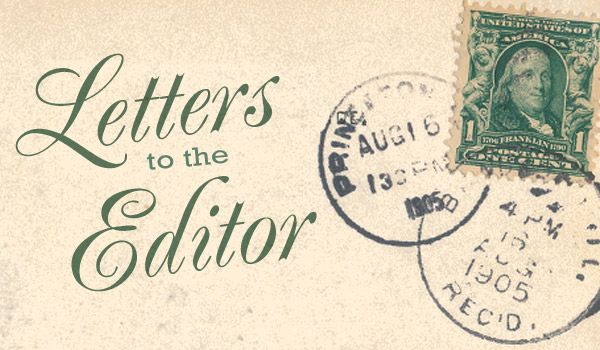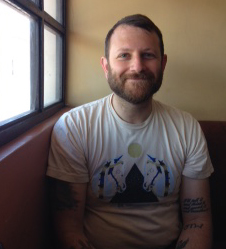
In this letter to the editor, a reader from California, Kathleen Streeter, questions whether or not young people are learning the skills they need through our public education system to become informed and engaged voters. To answer her, we reached out to Alex Robins, a social science high school teacher in San Rafael, California to get his perspective.
To the Editor,
I am a 75-year-old retired banker. I have always tried to be informed and have never failed to vote in an election, local or national. When I went to school there was something called the “Constitution test” that we had to pass in the eighth grade or you didn’t advance. I learned about our history and how our democracy was formed and how precious it is. It was made very clear to me that being informed and voting is critical to the survival of our our way of life and our country.
Last night I listened to Rep. Adam Schiff (D-CA) give a speech at the Brookings Institution, and he covered the whole current political “disaster” eloquently. One thing stood out for me: Schiff made the point that civics should be a part of our children’s education from kindergarten through high school.
How can we expect to be a population that lives up to the responsibility of living in a democracy if more than 70 percent of our population cannot name the three branches of government, to say nothing of what they are for?
We are in real trouble with Betsy DeVos in charge of education. If we are going to have an impact, we need to have a free and effective public education system that reaches all of our children and teaches them how critical it is to be an informed and consistent voter.
— Kathleen Streeter, Livermore, California
Dear Kathleen:
The state of political and civic life in our country certainly feels quite tenuous at the moment. You bring up many cogent points about education, engagement and democratic norms.

Alex Robins
I am a government, world history and English teacher in San Rafael, California, and I can tell you that despite this, the will and determination of much of our youth is strong. It may be hard to tell at times due to the little space they are given in the public sphere. Certainly there is some general apathy in young people today, but I would argue no more than in previous generations.
What can seem like inaction on the surface (voting numbers, political presence, government knowledge) doesn’t take into account the intellect, experience and bravery these kids show in understanding alternative perspectives, conversing about deeper political topics and standing up for injustice locally and around the country. Much of this engagement goes on in the classroom and in the wilds of the internet: on Reddit threads, Instagram posts and Twitter replies.
I watch students engage with politics and civic life every day. They constantly debate topics ranging from the relevance of the Electoral College (Lose it! Undemocratic!) to police brutality (Accountability? Body cameras?) and from constitutional slavery to the merits of originalism versus “living constitutionalism” for our Supreme Court justices. They use a variety of sources as well as personal experiences to relate these hefty concepts and topics to their own lives and the world around them.
In drafting an answer to your letter, I thought their input and reflection on the issues you present would be informative and help you understand some student perspectives on these pressing topics. I asked three students their thoughts on why young people might struggle to engage in civic life. Here are some of their responses:
- “So many students feel that voters (and older people generally) only think of themselves and their interests rather than considering the impact their decisions have on others.”
- “The larger systems in this country don’t seem to focus on young people’s issues as they have less monetary and political capital.”
- “People of color don’t tend to vote or pay attention to civic life because the system has ignored and belittled their experiences throughout our country’s history.”
Along with my students’ concerns, I believe there are some important ways to engage with young people that can help our society become more empathetic, engaged and civil.
First, we can give all people the benefit of the doubt. Different voices are valuable in a democracy, yet our partisan politics have created an “us versus them” mentality. By giving legitimacy to differing perspectives (on both sides of the aisle), we can start to find empathy in the many different American experiences of our citizens.
Second, we can focus on positive change. As an educator, it can be easy to fall into a “doom and gloom” attitude about inaction in politics or the rigidity of history. However, there are so many ways in which grass-roots organizations and movements have created incremental change in our country. Democracy is slow but effective. By focusing on the means rather than the ends, we encourage student buy-in.
Finally, we can be more inclusive in our conversations about young people. They know that society thinks they don’t care; this doesn’t make them want to care. We need to talk about issues they are affected by. If we want them to engage in discussions on expanded Medicare and tax reform, we need to talk about student loans and Affirmative Action. By offering them a seat at the table, they will be willing to sit.
Regarding your point on the future of public education, it is certainly at a crossroads. Here in California, we have an immense teacher shortage. Yet teachers and critical thinking are essential parts of how we must look ahead to the future. With accessibility to information through new technology, there is a belief that teaching will become easier; just grab an iPad and learning is at your fingertips. However without a facilitator to guide students on their paths to learning, fake news and misinformation can seep into students’ answers and understanding of the world. We need great, highly valued teachers to take up the cause and fight for our students.
A more free-thinking, thoughtful and skeptical population will lead to a truer democracy and a more civil society.
— Alex Robins, San Rafael, California
If you’re a serious reader of our website and have something you would like to say, Bill would like to hear from you. We’ll choose letters on an occasional basis as they seem relevant to an issue we have been following. Please keep your letter to a reasonable length. Email us at yourturn [at] billmoyers [dot] com.




